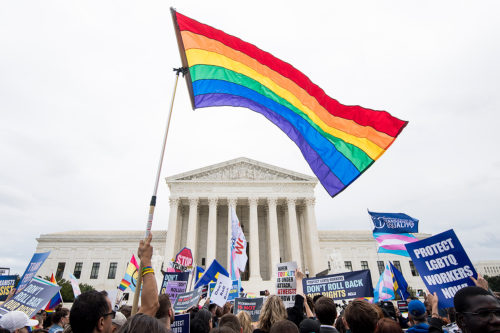On June 15th, the Supreme Court decided in Bostock v. Clayton County that Title VII of the Civil Rights Act of 1964 protects employees against discrimination based on their sexual orientation and gender identity. The Court unequivocally held that firing someone because they are gay or transgender is prohibited sex discrimination under federal law. While this is undoubtedly a major victory for the LGBTQ community, local laws in Maryland, Virginia, and the District of Columbia already prohibited employment discrimination based on sexual orientation and gender identity. Similarly, the Equal Employment Opportunity Commission, a federal government agency that enforces Title VII, had previously taken the position that LGBTQ discrimination is a violation of Title VII. Nevertheless, Monday’s decision was extremely significant. It once and for all ended the debate amongst federal appellate courts across the country, and left no question that Title VII prohibits discrimination against gay and transgender employees.
One important caveat: are religious organizations required to comply with Title VII’s newly clarified requirements if doing so would compromise their religious convictions? Justice Gorsuch addressed this concern in his opinion and outlined three ways in which religious employers may be exempt.
- Title VII has an express carve-out for religious organizations that allows them to give preference to members of their own religion when it comes to “the employment of individuals of a particular religion to perform work connected with the carrying on by such corporation, association, educational institution, or society of its activities.”
- There is a “ministerial exception” to Title VII, under which the First Amendment’s Free Exercise Clause generally bans the application of antidiscrimination laws like Title VII to “claims concerning the employment relationship between a religious institution and its ministers.”
- The Religious Freedom Restoration Act (RFRA) prohibits the federal government from substantially burdening a person’s exercise of religion unless it can show that doing so (a) furthers a compelling state interest, and (b) is the least restrictive way of furthering that interest. In Justice Gorsuch’s words, the RFRA is “a kind of super statute, displacing the normal operation of other federal laws” and therefore the RFRA “might supersede Title VII’s commands in appropriate cases.”
Employers should keep in mind that the Bostock decision did not directly address the issue of religious exemptions, and although Justice Gorsuch outlined some ways in which religious employers might be exempt, he explicitly cautioned that “how these doctrines protecting religious liberty interact with Title VII are questions for future cases.” Instead, the opinion’s noteworthy dicta should be read as a signal that more battles may lie ahead.
If you have any questions about the Supreme Court’s decision in Bostock v. Clayton County, religious exceptions to Title VII, or any other aspect of employment law, contact Thatcher Zavaro & Mani at 301-850-1246. www.ThatcherLaw.com. Email me at [email protected].
Follow us on:

